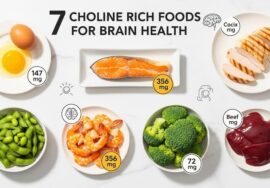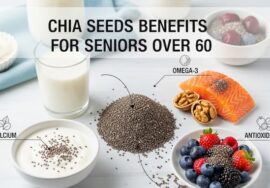Very hot water can damage the good stuff in honey, create unwanted by-products, and make blood sugar and reflux harder to manage—issues that matter more after age 60. The fix is simple: let drinks cool before adding honey, or use gentler alternatives.

Table of Contents
- Key Takeaways (for seniors)
- What Heat Actually Does to Honey
- Why This Matters More After 60
- How Hot Is “Too Hot” for Honey?
- Safer Ways to Enjoy Honey After 60
- Who Should Be Extra Cautious?
- Quick Recipe: Warm Honey-Lemon
- When to Skip Honey in Hot Water
- FAQ
- Quick Answers
- Final Word
Key Takeaways (for seniors)
- Heat hurts honey: High heat reduces natural enzymes and antioxidants and increases HMF (hydroxymethylfurfural)—a heat-formed compound older adults may wish to limit.

- Blood sugar matters more: Honey is mostly simple sugars. In very hot drinks, people tend to sip quickly, which can spike post-meal glucose, especially for adults 60+.

- Reflux & throat sensitivity: Hot liquids can aggravate GERD/heartburn, dry the throat, and irritate sensitive oral tissues or dentures.

- Simple safe rule: Add honey only to warm (not hot) water—ideally below ~105–110°F (comfortably warm to your finger).

- Better options: Warm lemon-ginger water, room-temp honey in yogurt or oatmeal, or herb teas cooled a few minutes before sweetening.

What Heat Actually Does to Honey
1) Enzyme loss & antioxidant drop
Raw honey naturally contains enzymes (like diastase) and antioxidant compounds. Heating above mild warmth degrades these. If you’re using honey for throat comfort or wellness, you’ll keep more benefits by avoiding high temperatures.

2) HMF forms when honey is heated
When honey is heated or stored too long in warm places, HMF can increase. While typical dietary amounts aren’t an emergency, the prudent approach—especially for older adults focused on heart and metabolic health—is to avoid unnecessary heating and keep HMF low.

3) Flavor and aroma fade
Heating dulls honey’s floral notes. If you love the varietal taste (orange blossom, clover, wildflower), keep it warm—not hot.

Why This Matters More After 60
1) Blood sugar spikes feel bigger
Many older adults aim to keep added sugars modest. A mug of hot honey water can go down fast, causing a sharper glucose surge versus slowly enjoying honey on whole-grain toast or mixed into protein-rich Greek yogurt.

2) Reflux and indigestion
Very hot drinks can aggravate GERD. Adding a quick-absorbing sweetener to that hot fluid may further trigger heartburn or bloating in sensitive individuals.

3) Mouth, throat, and dental comfort
Hot, sugary liquids can soften dental adhesives, irritate gums, and feed oral bacteria. If you wear dentures or have dry mouth, keep drinks warm—not scalding—and rinse with plain water after sweetened beverages.

4) Hydration and pace
Seniors often work to stay hydrated. Very hot, sweet drinks can be dehydrating if they nudge you to drink less plain water—or if you sip hot liquids instead of balanced fluids throughout the day.

How Hot Is “Too Hot” for Honey?
- Practical rule: If you can’t comfortably keep your finger on the mug for a few seconds, it’s too hot for honey.
- Kitchen cue: Boiling water is ~212°F. Let it sit 5–10 minutes to cool below ~110°F before stirring in honey.
- Tea tip: For most herbal teas, steep with hot water, then wait a few minutes; add honey once the mug feels warm, not hot.
Safer Ways to Enjoy Honey After 60
- Warm Lemon-Ginger Sipper: Steep ginger in hot water, let it cool, then add lemon and 1 tsp honey.
- Honey + Protein/Fiber: Drizzle room-temp honey on Greek yogurt, steel-cut oats, or chia pudding to slow sugar absorption.
- Cooler Teas: Peppermint, chamomile, or rooibos—sweeten after cooling a bit.
- Sore Throat Soother: Mix honey with room-temperature lemon and a pinch of salt; take by the spoon or mix into lukewarm water.
Who Should Be Extra Cautious?
- Adults with pre-diabetes or diabetes
- Anyone with GERD/heartburn or frequent throat irritation
- Those with dental sensitivity, dentures, or dry mouth
- People on calorie- or sugar-conscious eating plans
Note: If you manage blood sugars or reflux, ask your clinician or dietitian how to fit honey into your plan.
Quick Recipe: Warm Honey-Lemon
- Heat water to a boil, then cool 5–10 minutes.
- Add 1–2 tsp lemon juice.
- Stir in 1 tsp honey once the cup is only warm.
- Optional: add a thin slice of fresh ginger.
- Sip slowly. Follow with a few sips of plain water for dental health.
When to Skip Honey in Hot Water
- You’re having a night of reflux or sore esophagus.
- You need to keep post-meal glucose steady.
- The water is steaming and still near-boiling.
- You’re about to brush your teeth (sweet drinks before brushing can feed bacteria).
FAQ
1) Is warm honey water safe for seniors?
Yes—warm is fine. Avoid hot or boiling water to protect enzymes, flavor, and comfort.
2) What’s the best temperature to add honey?
Add honey below ~105–110°F—when the mug feels comfortably warm, not hot.
3) Does heating honey create toxins?
Heating raises HMF, a heat-formed compound. Keeping temperatures low helps minimize HMF and preserve honey’s natural goodness.
4) Can hot honey water spike blood sugar?
It can. Hot, sweet liquids are easy to sip quickly. Add honey to warm drinks and pair with fiber/protein to blunt spikes.
5) Is honey better than white sugar for older adults?
Honey offers trace compounds and flavor, but it’s still an added sugar. Use sparingly and mind temperature.
6) Does honey help a senior cough?
Honey can soothe. Use it in lukewarm tea or by the spoon; avoid very hot liquids.
7) Can I add honey to coffee?
If you like it, let coffee cool a few minutes first, then add a small amount of honey.
8) Does hot water destroy all honey benefits?
Not all, but high heat reduces enzymes and aroma. Warm temps preserve more.
9) How much honey is okay after 60?
Portions vary. A general conservative serving is 1–2 teaspoons at a time, mindful of total added sugars in your day.
10) Is raw honey different here?
Raw honey has more heat-sensitive components. It’s especially worth avoiding high heat with raw honey.
11) What about lemon-honey water for weight loss?
It won’t melt fat, but a warm, lightly sweet drink can be a calming routine. Keep portions modest.
12) Can honey interact with medications?
Honey has few direct interactions, but added sugars can affect glucose control. If you take diabetes or reflux meds, ask your clinician how to fit it in.
Quick Answers
- Best temperature to add honey: Add below ~110°F to preserve enzymes and reduce HMF.
- Why avoid hot honey water after 60: It may raise HMF, spike blood sugar, and aggravate reflux.
- Simple rule: If the cup feels hot, wait. Add honey when it’s warm.
- Safer alternatives: Warm lemon-ginger, honey on yogurt/oatmeal, or cooled herbal tea.
- Serving size: Start with 1–2 tsp; monitor comfort and glucose.
Final Word
You don’t need to give up honey—just cool the drink first and be mindful of portion size. That small shift keeps more of honey’s natural goodness while supporting blood sugar, reflux comfort, and dental health.








